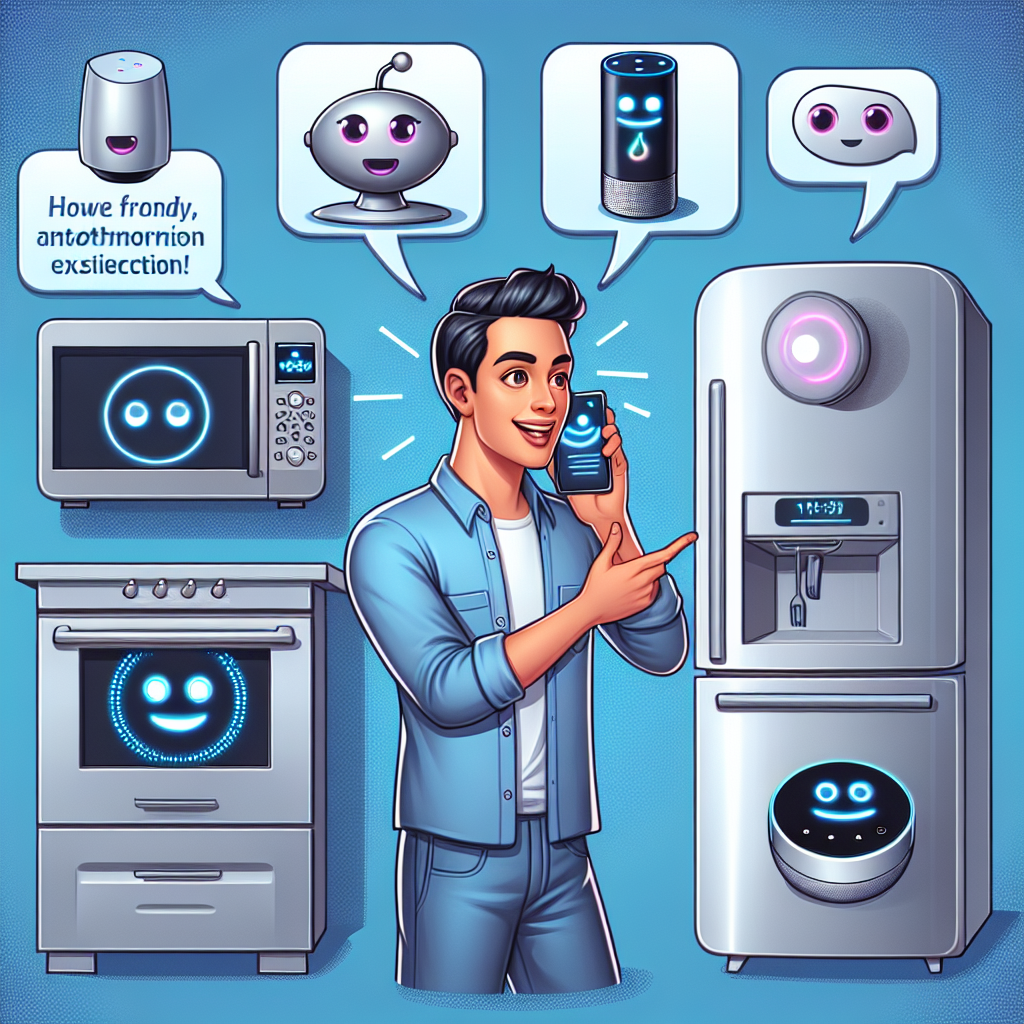In today’s rapidly evolving digital landscape, the fusion of cloud computing and artificial intelligence has given birth to a revolutionary concept: AI SaaS Creation Platforms. These innovative platforms represent a significant leap forward, enabling businesses of all sizes to harness the power of intelligent applications without the need for extensive infrastructure investments or specialized technical expertise.
For individual entrepreneurs and small businesses, AI SaaS Creation Platforms are nothing short of transformative. They democratize access to sophisticated AI technologies that were once the exclusive domain of tech giants with deep pockets. By providing ready-to-use infrastructure and pre-built components, these platforms allow users to deploy AI applications that can analyze data, automate tasks, and deliver intelligent insights—all without writing complex code or managing complicated server setups.
The beauty of these platforms lies in their accessibility. A solo entrepreneur with a brilliant idea can now bring their vision to life using user-friendly low-code platforms, effectively competing with larger organizations. Small team companies can implement AI solutions tailored to their specific needs without expanding their IT departments or outsourcing to expensive consultancies.
Unlocking Potential: Key Benefits of AI SaaS Platforms
The surge in AI SaaS adoption isn’t happening by chance. According to Accenture, AI-driven enterprises report a 38% increase in profitability, highlighting the tangible benefits these intelligent platforms deliver. For startups and small businesses, these advantages are particularly compelling.
First and foremost is accessibility. AI SaaS Creation Platforms remove traditional barriers to entry, allowing users with limited technical backgrounds to create sophisticated AI applications. Through intuitive interfaces and low-code solutions, these platforms empower users to focus on solving business problems rather than wrestling with complex programming challenges.
Cost-effectiveness represents another critical advantage. By eliminating the need for substantial upfront investments in hardware, software licenses, and specialized personnel, AI SaaS platforms significantly reduce the financial burden of AI adoption. Instead of building from scratch, businesses can leverage pre-built components and pay-as-you-go models, making AI implementation financially viable even for budget-conscious startups.
Perhaps most valuable in today’s fast-paced business environment is the rapid deployment capability these platforms offer. Traditional software development cycles can span months or even years, but AI SaaS platforms enable businesses to launch functional applications in days or weeks. This agility is invaluable for startups looking to adapt quickly to market changes or test new ideas without extensive resource commitments.
A Tech Jury survey reveals that 35% of SaaS businesses have already implemented AI, with another 42% planning AI SaaS projects in the near future. This trend underscores the growing recognition that AI-powered automation reduces manual workloads by handling repetitive tasks such as data entry, customer support, and workflow management—allowing teams to focus on higher-value activities that drive business growth.
For small businesses, these platforms offer enterprise-grade capabilities without enterprise-level complexity. Customizable AI digital workers can be tailored to specific industry needs, enabling organizations to automate specialized tasks that previously required skilled human operators.
Navigating the Hurdles: Scalability Challenges in AI SaaS Development
Despite their tremendous potential, AI SaaS Creation Platforms aren’t without challenges, particularly when it comes to scalability. As developers and technical professionals push the boundaries of what’s possible, several obstacles emerge that require innovative solutions.
High development costs remain a significant concern, especially for complex AI applications that require extensive customization. While the initial implementation might be relatively straightforward, scaling these applications to handle growing data volumes and user bases often demands substantial investment in additional resources and expertise.
Complexity management presents another formidable challenge. As AI systems grow, they become increasingly difficult to maintain and update. The intricate interplay between different components can lead to unexpected behaviors when scaling, requiring sophisticated monitoring and management systems to ensure consistent performance.
Integration issues also frequently arise when attempting to connect AI SaaS solutions with existing business systems. The challenge of maintaining data consistency across disparate platforms becomes more pronounced as scale increases, potentially creating bottlenecks that hamper overall system performance.
One major challenge highlighted by industry experts is technical integration, which involves aligning AI capabilities with existing architecture and workflows without disrupting operations. This becomes particularly problematic when scaling across departments or organizations with varied technical environments.
Data complexity compounds these difficulties. AI systems thrive on data, but as they scale, managing the volume, variety, and velocity of that data becomes exponentially more challenging. Ensuring data quality, accessibility, and compliance across expanding systems requires robust data governance frameworks and scalable storage solutions.
Security and compliance concerns also grow with scale. As AI SaaS platforms handle increasingly sensitive information across broader user bases, maintaining appropriate security measures and regulatory compliance becomes more complex and resource-intensive.
Despite these challenges, innovative solutions are emerging. AI now optimizes resource allocation, predicts infrastructure needs, and automates scaling processes, ensuring seamless performance even during rapid growth. Modern AI SaaS Creation Platforms are increasingly incorporating these capabilities, helping users overcome scalability hurdles without extensive technical expertise.
Expanding Horizons: Growth Opportunities in AI SaaS Creation
Looking beyond challenges, the AI SaaS creation landscape is rich with growth opportunities that promise to revolutionize how businesses operate. At the forefront of this evolution are customizable AI digital workers—intelligent agents capable of performing specific tasks with minimal human intervention.
These digital workers represent a significant leap forward in workflow automation, enabling organizations to delegate routine responsibilities to AI systems that learn and improve over time. Unlike rigid automation tools of the past, these digital workers can adapt to changing conditions and handle exceptions with increasing sophistication.
Personal use AI products represent another exciting frontier. As AI SaaS Creation Platforms become more accessible, individuals can develop personalized AI assistants tailored to their unique needs and preferences. From managing calendars and prioritizing communications to providing personalized recommendations and insights, these AI companions enhance productivity while reducing cognitive load.
Perhaps most transformative is the emergence of marketplaces for sharing and selling AI solutions. These ecosystems allow creators to monetize their innovations while giving users access to specialized tools without building them from scratch. This collaborative approach accelerates innovation and ensures that even niche industries can benefit from AI advancements.
The economic impact of these opportunities is substantial. By automating routine customer interactions, SaaS companies can significantly enhance customer satisfaction and operational efficiency. For early-stage startups, AI-powered SaaS automation cuts operational costs while ensuring data accuracy and consistency—critical advantages when competing with established players.
Across industries, these customizable solutions are transforming workflows and enhancing productivity. In healthcare, AI digital workers assist with patient scheduling and record management. In finance, they automate risk assessments and fraud detection. In marketing, they personalize customer communications at scale. The versatility of these tools means their potential applications are virtually limitless.
The Power of Partnership: Intelligent Collaboration in Action
The true magic of AI SaaS Creation Platforms lies not in replacing human work but in enhancing it through intelligent collaboration. This approach aligns perfectly with Zygote.AI’s mission to empower users to create efficient AI applications without coding skills, fostering environments where human creativity and machine intelligence combine for optimal outcomes.
In this collaborative model, AI agents work alongside human teams, handling routine tasks while providing insights that inform decision-making. By analyzing vast amounts of data and identifying patterns beyond human perception, these systems become invaluable partners in driving innovation and solving complex problems.
Consider content creation workflows, where AI can generate drafts, suggest improvements, and handle formatting while human creators focus on strategy and creative direction. Or customer service environments, where AI handles routine inquiries while escalating complex issues to human representatives equipped with AI-generated context and recommendations.
This intelligent collaboration extends to cross-functional teams as well. AI systems can bridge communication gaps between departments, ensuring consistent information flow and highlighting connections that might otherwise remain hidden. The result is more cohesive, efficient organizations capable of responding rapidly to changing conditions.
For individual entrepreneurs with limited resources, these collaborative systems effectively multiply capabilities without increasing headcount. Small team companies can compete with larger organizations by leveraging AI to enhance each team member’s productivity and effectiveness. And developers can focus on solving novel problems rather than reimplementing common functionality.
Zygote.AI exemplifies this philosophy by offering a user-friendly low-code platform that allows anyone to bring their ideas to life. By providing highly customizable AI digital workers and workflows that cater to specific industry needs, Zygote.AI ensures that intelligent collaboration is accessible to all, regardless of technical background.
The Road Ahead: Future Prospects in AI SaaS Creation
As we look toward the horizon, the future of AI SaaS Creation Platforms appears boundlessly promising. Ongoing advancements in AI agent technology continue to push the boundaries of what’s possible, creating increasingly sophisticated systems capable of handling complex tasks with minimal supervision.
Workflow automation is evolving from simple task management to comprehensive process orchestration. AI now handles complex workflows, from customer onboarding to fraud detection, with minimal human intervention. In the near future, we can expect to see fully automated workflows that require no human intervention at all—a vision already being realized by pioneers like Zygote.AI, which has developed systems that autonomously select topics, write content, generate illustrations, perform reviews, and publish promotional articles.
The future of SaaS hinges on AI-powered product development, transforming how teams build, test, and iterate. From AI-assisted coding to intelligent feature prioritization, these advancements will accelerate innovation cycles while improving product quality and user satisfaction.
Organizations are increasingly integrating AI into their workflows to uncover actionable insights, optimize decision-making, and predict market changes. This trend will intensify as AI systems become more accessible and capable, enabling even small businesses to benefit from advanced analytics and forecasting.
Zygote.AI’s vision to revolutionize work processes aligns perfectly with these developments. By creating an open market that encourages users to share and sell their AI SaaS products, Zygote.AI is fostering a community of innovation that will drive continuous improvement and discovery.
The ultimate goal—achieving fully automated workflows that require no human intervention—represents a paradigm shift in how we think about work. Rather than performing routine tasks, humans will increasingly focus on creative endeavors, strategic thinking, and interpersonal connections that machines cannot replicate.
In this smarter, more efficient world, AI SaaS Creation Platforms will serve as the foundation for unprecedented productivity and innovation. Individual entrepreneurs will leverage these tools to compete globally. Small businesses will operate with the efficiency of much larger organizations. And technical professionals will solve previously intractable problems by building on sophisticated AI capabilities.
The journey from growing pains to game-changing gains in AI SaaS creation is well underway, and platforms like Zygote.AI are leading the charge toward a future where everyone can realize their potential through intelligent collaboration with AI. As these technologies continue to mature and evolve, they promise to revolutionize not just how we work, but how we create, collaborate, and contribute to the world around us.









